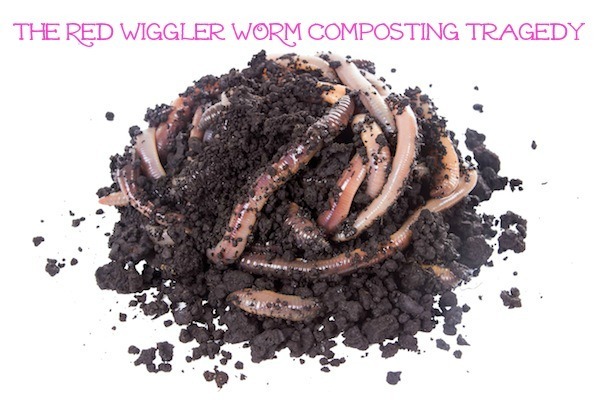Top Advantages of Red Wigglers for Your Composting Needs

Boosted Compost Quality
One can appreciate the considerable influence that red wigglers have on compost quality. These earthworms, particularly Eisenia fetida, are renowned for their capacity to transform natural waste right into nutrient-rich vermicompost.
In addition to improving vitamins and mineral web content, red wigglers improve dirt framework. Their burrowing activities produce networks that promote oygenation and drain, promoting a much healthier origin setting. The microbial task promoted by their visibility leads to an extra varied and active soil biota, which further contributes to overall plant wellness.
Furthermore, vermicompost retains moisture better than standard compost, lowering the need for frequent watering. This residential property is especially helpful in drought-prone locations. In general, the incorporation of red wigglers in composting techniques significantly elevates the top quality of garden compost, making it a premium change for gardens and agricultural applications.
Speedy Decomposition Refine
The performance of the disintegration procedure is substantially improved by the presence of red wigglers, which proactively increase the malfunction of organic materials (Red Wigglers Free Shipping). These earthworms, specifically Eisenia fetida, are renowned for their starved appetite, eating a significant volume of food waste daily. As they feed on raw material, they break it down right into smaller particles, raising the area for microbial activity and accelerating decay
Additionally, red wigglers grow in a damp, nutrient-rich setting, which even more advertises the growth of helpful microorganisms. This cooperative partnership between worms and germs produces optimum conditions for fast disintegration. The worms' burrowing activity aerates the garden compost, ensuring sufficient oxygen degrees, which is essential for cardiovascular disintegration processes.
Furthermore, red wigglers can refine a diverse series of natural products, consisting of kitchen area scraps, paper, and backyard waste, making them versatile composters. Their capability to transform waste into garden compost quickly not only decreases the volume of waste sent out to land fills but also creates a useful source for garden enthusiasts and farmers. Basically, the inclusion of red wigglers in composting systems substantially reduces the moment needed for natural waste to decay, making them indispensable allies in sustainable waste management.
Nutrient-Rich Castings
As red wigglers efficiently break down organic materials, they produce nutrient-rich castings, which are a highly beneficial byproduct of the composting process. These spreadings, often referred to as vermicompost, contain a wealth of important nutrients including potassium, nitrogen, and phosphorus, making them a superb all-natural plant food for gardens and plants.
The microbial activity existing in red wiggler spreadings improves soil framework, advertising aeration and water retention. This enhanced dirt top quality brings about much healthier plant growth and enhanced crop returns. In addition, the slow-release nature of the nutrients in worm castings guarantees that plants receive a constant supply gradually, minimizing the need for chemical plant foods.
In addition, the existence of useful microbes in these spreadings plays a crucial role in subduing soil-borne illness, fostering an extra durable yard environment. The application of worm castings not just enhances the dirt however also adds to sustainable gardening techniques by recycling natural waste. Generally, utilizing red wigglers for composting not just produces nutrient-rich spreadings but likewise sustains environmental equilibrium while improving the performance of your gardening undertakings.

Odor Reduction Benefits
Utilizing red wigglers in composting systems significantly contributes to odor reduction, creating an extra pleasant environment for both gardeners and next-door neighbors. These worms are very reliable at damaging down raw material, such as food scraps and yard waste, which can frequently produce unpleasant smells if entrusted to decay anaerobically.
Red wigglers grow in cardiovascular conditions, implying they require oxygen to endure. By advertising aerobic decomposition, they aid to decrease the production of foul-smelling gases like ammonia and hydrogen sulfide that prevail in inadequately handled compost heaps. Their consistent motion through the garden compost assists ensure that oxygen is equally distributed, further boosting the cardiovascular process.
In addition, red More hints wigglers take in harmful microbes and organic products that contribute to smells, changing them into nutrient-rich spreadings. This not only lowers undesirable smells however additionally adds to a much healthier garden compost atmosphere.
Eco-Friendly Waste Monitoring

The effect of red wigglers on waste reduction is significant. By diverting natural waste from garbage dumps, where it would produce methane-- a potent greenhouse gas-- these worms add to a decrease in overall carbon emissions. Their capability to improve soil wellness promotes sustainable farming practices, cultivating biodiversity and minimizing the requirement for chemical plant foods.
Integrating red wigglers into waste monitoring methods not just addresses waste disposal concerns however additionally motivates local areas to embrace even more sustainable techniques. By promoting awareness of vermicomposting and its advantages, people can actively participate in environment-friendly initiatives, inevitably resulting in a much healthier world. Hence, red wigglers function as an essential element in the search of sustainable waste monitoring solutions.
Final Thought
The assimilation of red wigglers right into composting techniques considerably boosts the total quality and effectiveness of natural waste handling. Generally, red wigglers serve as an important element in the quest for ecologically liable and effective composting solutions.
The incorporation of red wigglers right into composting practices offers numerous considerable advantages that can improve both the efficiency and performance of organic waste administration. In significance, the inclusion of red wigglers in over here composting systems significantly reduces the time required for natural waste to decompose, making them essential allies in sustainable waste management.
Red wigglers play a crucial role in environmentally friendly waste monitoring by properly reusing organic materials that would certainly or else add to land fill waste.Integrating red wigglers into waste monitoring approaches not just addresses waste disposal problems but likewise urges local areas to adopt even more sustainable practices.The assimilation of red wigglers right into composting techniques dramatically enhances the total high quality and efficiency of organic waste handling.